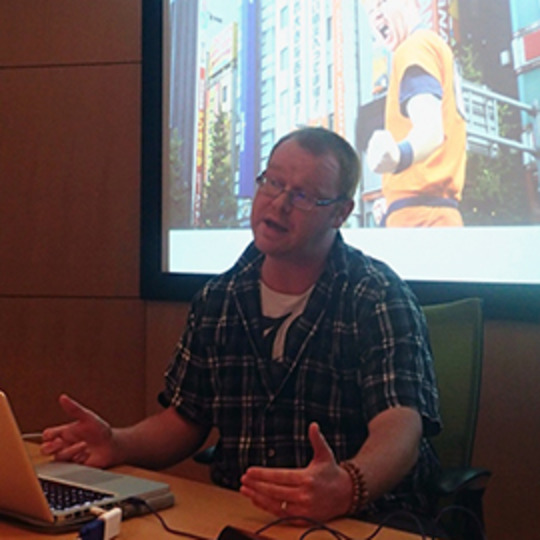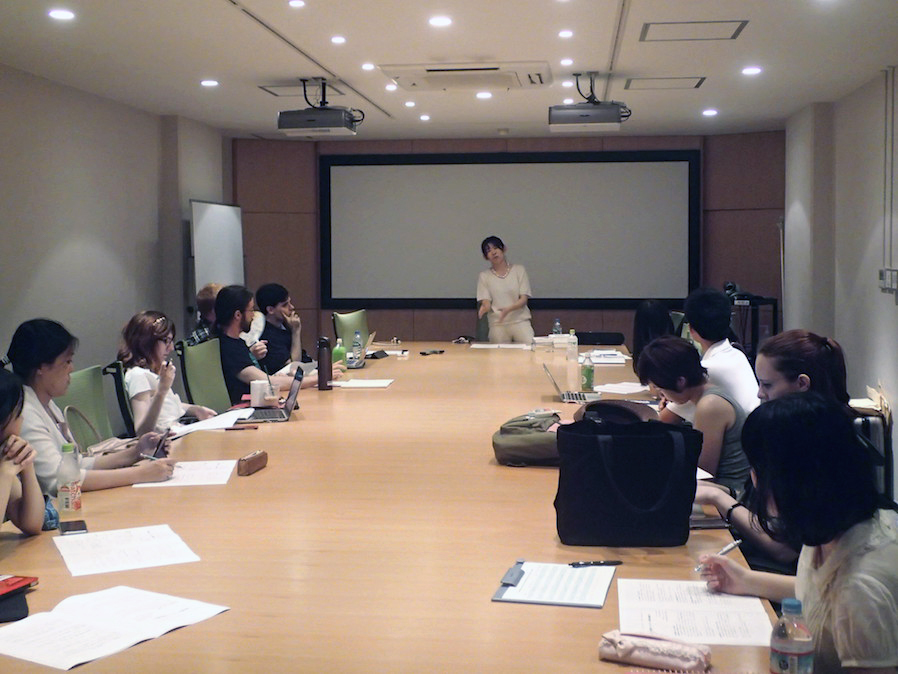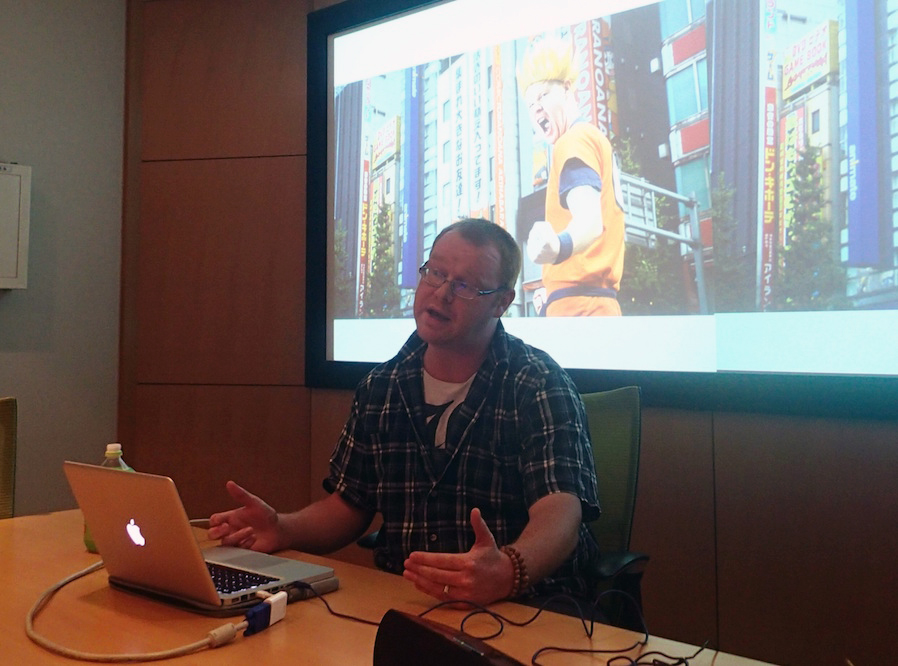
Workshop for Methodology in Multicultural Settings: Interviews and Fieldwork Lillian Tsay
- Time and Date:
- July 28 (Tues.), 2015
- Location:
- Conference Room, 6th Floor, iii Main Building, Hongo Campus
- Organized by:
- The Educational Project 4 "Producing Multicultural Communities," Integrated Human Sciences Program for Cultural Diversity, The University of Tokyo
As a graduate student, one of the challenges I find most problematic is the appropriate application of methodology. Since I am doing qualitative studies, my supervisor told me that although my main interests lie in textual and media studies, I cannot simply do textual analysis for my studies, but must also collect survey data, conduct interviews and do fieldwork to support the arguments I have found out in the texts and archives. Thus, the problem of linking different methodologies together is one of my most difficult tasks.
Therefore, I am grateful to have had the opportunity to join the workshop "Methodology in Multicultural Settings: Interviews and Fieldwork." We could luckily participate in the lectures and question & answers sessions of two outstanding speakers: Professor Kurosaka Ai, who specializes in Hansen's disease's patients; and Patrick Galbraith Ph.D, who is studying on Akihabara and Japanese subculture. Both speakers shared the experiences of their fieldwork and explained about the difficulties and necessary skills required when doing fieldwork. For instance, Professor Kurosaka mentioned that when conducting life-story interviews, the researcher has to listen to what the interviewee wants to say and not confine the interview within the research question the researcher wishes to discuss. Afterward, Doctor Galbraith introduced us some concepts of the basic theories, and how he put Geertz's anthropological theory into practice. Although one speaker spoke in Japanese and the other in English, the results were surprisingly successful in that all the participants exchanged ideas freely.

As the theme of the IHS program is centered around "multiculturalism" and "cultural diversity", these experiences and techniques for doing fieldwork and interviews are of vital importance when we are confronted with people or spaces foreign to ourselves. While Max Weber notes that "one does not have to be Caesar to understand Caesar", it is still important to learn how to study or even speak on behalf of those people whose life experiences may be completely different from our own.
My research is related to tourism and food culture, and both are popular topics in anthropology. In order to finish my thesis, besides the need for historical and textual analysis, I also need to work in a foreign country and interview people using a language of which I am not a native speaker. Therefore, I am thankful to have had the opportunity to join this workshop, since it provided me with many experiences that I could not acquire by myself. By having a workshop like this, it is exceedingly helpful for graduate students like me.

